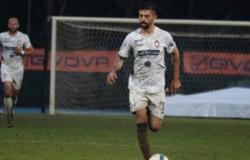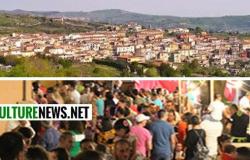Doctors and operators confirm that in terms of healthcare there is still a lot to do: there is a lack of young people who want to be general practitioners. The right to treatment (second stage).
Small glimmers of improvement, but many steps still to be taken on the healthcare front for rheumatic patients: this is the picture that emerges from the important conference which brought together doctors, operators and patient associations under the evocative title “SOS Rheumatology “, renewing concern about the risk of treatment for many patients with rheumatological diseases.
An alarm to which is added the concern for young people who no longer choose the path of general medicine, to become “family doctors”. The comparison proposed by the Lucchese Medical and Surgical Society with the patronage and collaboration of the Medical Association of Lucca, and in collaboration with ATMaR Toscana, the Tuscan association of rheumatic patients, the Archimede association, the Lucca Association of Art and Psychology Alap, the studies and research prof. Gugliemo Lippi Francesconi and with the liberal and non-conditioning contribution of Fenix Pharma and the patronage requested from the Province and Municipality of Lucca.
“From the conference, organized by collecting ATMar’s proposal to highlight the difficult moment we are experiencing on the public health front – explains Daniela Melchiorre, president of the Lucchese Medical Surgical Society -, the various problems that citizens face on a daily basis emerged: from waiting lists for rheumatology treatments, to difficulties in accessing treatment, means worsening the quality of life of these patients who are 5% of the population and who experience disabling diseases in their daily lives accomplished, thanks also to the commitment of the ASL Tuscany North West, but much still needs to be done, as demonstrated by the general practitioners present at the meeting. The very complex picture was highlighted both from the point of view of complications and from the point of view of the needs of each patient. And general practitioners often find themselves managing this complexity alone without the support of the specialist who is often difficult to contact and also because there is a lack of real training in this regard. And this is where we must start, from specific training paths.”
“For chronic rheumatological patients – explains Paola Grossi, president of ATMar – the Tuscan association of rheumatic patients – it would be important to take charge of the patient at 360 degrees: an integrated approach of the rheumatologist and the general practitioner as defined in the new DDL 946, recently approved. In the next 6 years, one in three general practitioners will retire and now is the time to review this type of role. As witnessed, young doctors are running away from the role of general practitioner, due to often poor training and rules that no one wants to change. Universities, hospitals, research centres, businesses and the local area must network, carrying forward the spirit of early diagnosis and open science that allows obtaining results at a flexible and multidisciplinary level”.
During the conference, many different aspects were illustrated, starting from DDL 946, which brings into play important concepts, which however need to be compared with the real resources available. Among the novelties of the research, in rheumatological diseases the importance of the alteration of the intestinal microbiota (the so-called intestinal flora) and at the same time of the oral one, recognized as the cause of various pathologies, a known fact which involves many specialist areas. Our intestinal microbiota, it was recalled at the conference, can interact with the soil microbiota (we breathe the soil!) and can interact with drugs as in the case of antibiotics: the latter is a significant fact which explains the individual reaction with respect to some specific treatments. A really interesting proactive page was the one dedicated to museum therapy, which made it clear how important this practice studied at an international level is with relevant implications from a sociological, social and biological point of view: “The visit to museums would in fact – as explained by doctor Maurizio Vanni – a real accompanying therapy that helps to free oneself from stress and rediscover an active relationship with one’s sensory system, reducing discomfort in the body”.






